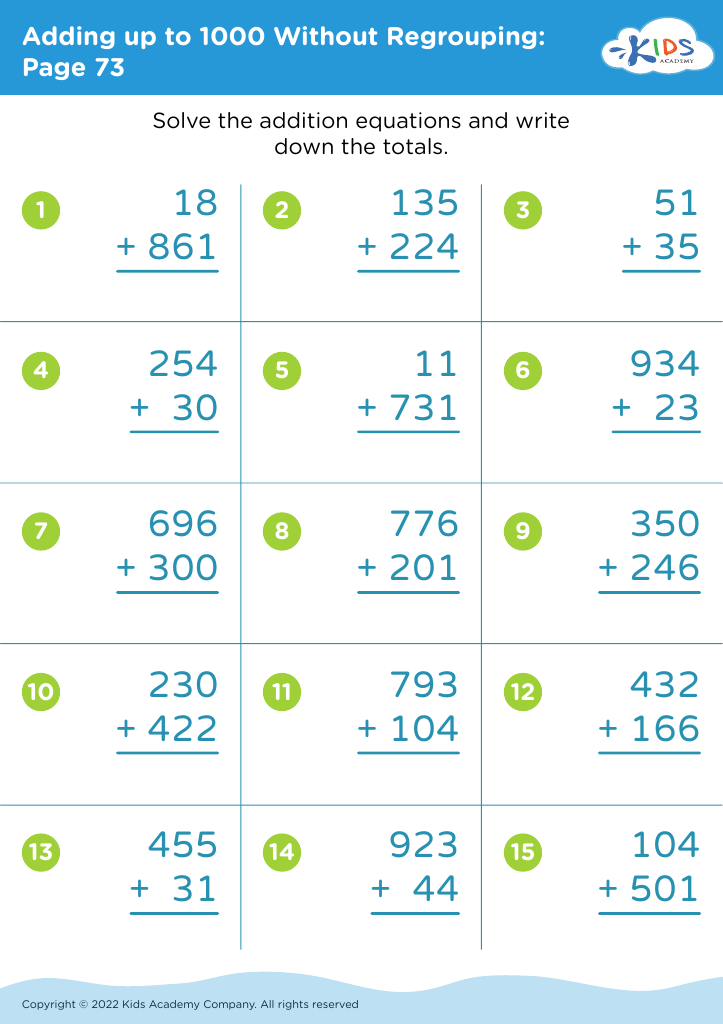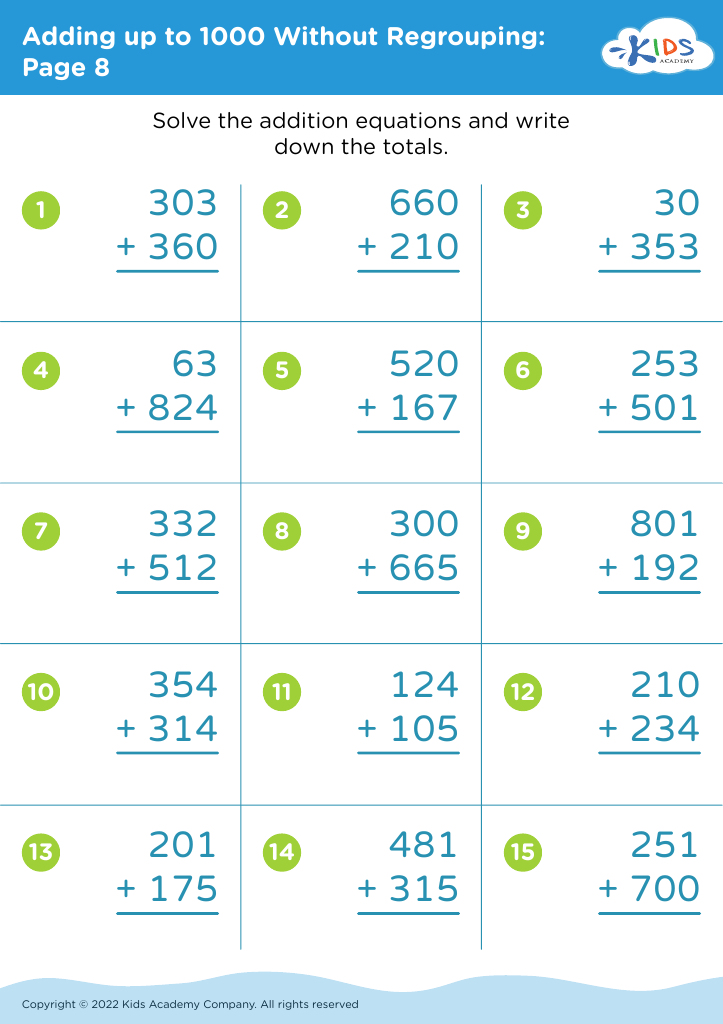Enhance comprehension Adding up to 1000 Without Regrouping Worksheets for Ages 5-9
4 filtered results
-
From - To
Enhance comprehension with our "Adding Up to 1000 Without Regrouping" worksheets, specifically designed for children aged 5-9. These engaging resources help young learners develop their math skills through fun and interactive activities. By focusing on addition without regrouping, children can build a strong foundation in basic arithmetic while improving their number sense and problem-solving abilities. Our worksheets encourage independent learning and provide a variety of problems to enhance understanding. Perfect for classroom use or home study, these worksheets maximize learning potential and foster a love for math. Empower your child’s educational journey today with our thoughtfully crafted materials!
Enhancing comprehension skills in young learners, particularly in arithmetic like "Adding up to 1000 without regrouping," is crucial for several reasons. First, mastering this concept lays a solid foundation for mathematical understanding. Ages 5-9 is a formative time when children develop essential skills; grasping addition helps bridge to more complex concepts, including subtraction, multiplication, and understanding place value.
Additionally, strong comprehension of addition enhances problem-solving abilities. When children comprehend how numbers interact without the complications of regrouping, they build confidence, fostering a positive attitude towards mathematics. This confidence not only motivates them to tackle more challenging problems but also equips them with the perseverance needed to pursue ongoing learning.
Moreover, skilled mathematical understanding transcends the classroom. The ability to add numbers accurately supports day-to-day activities, such as budgeting, cooking, or sharing resources, reinforcing the practical applications of math in real life.
Finally, engaging with these foundational concepts promotes critical thinking skills. Teachers and parents can encourage exploration and discussion around math problems, ultimately supporting broader cognitive development. Investing time and resources in young children's understanding of addition ensures they are well-prepared for future academic challenges, fostering a lifelong appreciation for learning.


















